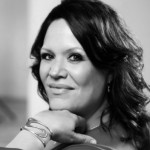There, I said it. One of my deepest fears laid out for the whole world to see: I’m not really who you think I am.
Mostly — like 99% of the time — I’m actually pretty confident. I know that I know my stuff.
But every now and then something happens to trigger the ugly and critical self-accusations: You really have no idea what the hell you’re doing, do you? The only reason they signed up for your class is because they’re your friend. There are other people WAY more qualified to do this work than you…
I’ve noticed that usually these thoughts come up during discussions around money. And not just for me. Many of us use our bank balances as evidence of our “authority.” (See this post by Tad Hargrave for more on this angle.)
When I’m wallowing in these thoughts, they sound like If I’m such a marketing genius, why aren’t I making multiple six-figures? For you, it might sound like Surely nobody is going to pay me (whatever the going rate is for what you do). I don’t have the credentials. If I’m honest, I know exactly why I’m not making 6-figures a year: Because I’ve made a conscious choice to build my business in a certain way and at a certain pace (aka Slow Marketing).
How Many Initials Do I Need to Feel Like an Authority?
When I started my first business back in ’06 (Social Good Marketing), the thought that others would figure out I wasn’t qualified to be a “marketing expert” plagued me much more often and in a different way than it does now. So much so, that I began pursuing the idea of getting my MBA. After all, my own father had FOUR degrees. (BS, Masters of Science, Masters of Teaching and finally a DDS.)
In our family, we revere academia. So, I truly believed that a few more initials after my name would finally give me the credibility I so obviously “needed.”
Thankfully, a coach helped me explore this thought a little deeper. In the process, I began to see and understand that I really did have the credentials to do the work I was doing. That I’d accomplished quite a bit, actually. And that I didn’t need to spend another $50K to convince myself (or the world) that I was an authority in my profession.
For awhile, I was able to put those fears to rest and go on my merry way. But recently, the topic of feeling like a fraud came up in a group discussion. So here we are. At first, I was like — Yes! I mean, No! I mean, obviously I need to write about this because revealing my own impostor feelings scares the bajeezus out of me.
It’s Called The Impostor Syndrome
I did some googling and apparently the name for this is Impostor Syndrome.
After all, what we do here is different from Tina Fey being funny or Meryl Streep acting, right? We’re “experts” advising clients on how to be successful. Which means we’ve got a lot to live up to. So I reached out to a few of my favorite folks to see if they’d share their thoughts on the topic. Maybe you recognize some of these names?
Carol Tice of Make a Living Writing ![]() OMG, I suffered from this for years. As a college dropout, I blundered into writing for the Los Angeles Times real estate section as a freelancer about 9 months after I discovered the world of article writing. I was completely freaked and felt so unqualified. And the feeling really took probably 15 years to go away. I kept waiting for someone to tap me on the shoulder and tell me the Universal Editor Network had found me out and send out the word to officially ban me from making a living as a writer. Even after I worked 2 staff writer jobs for 12 years, winning my final publication a prestigious national business-writing award they’d never gotten in 25 years of publishing, I kept expecting to get busted. It wasn’t until the past few years that I finally started to relax. Now I try my best to help other writers get over this syndrome faster than I did. In the world of writing, it’s on the page or it isn’t. Nobody cares if you learned it under a freeway overpass or at Columbia.
OMG, I suffered from this for years. As a college dropout, I blundered into writing for the Los Angeles Times real estate section as a freelancer about 9 months after I discovered the world of article writing. I was completely freaked and felt so unqualified. And the feeling really took probably 15 years to go away. I kept waiting for someone to tap me on the shoulder and tell me the Universal Editor Network had found me out and send out the word to officially ban me from making a living as a writer. Even after I worked 2 staff writer jobs for 12 years, winning my final publication a prestigious national business-writing award they’d never gotten in 25 years of publishing, I kept expecting to get busted. It wasn’t until the past few years that I finally started to relax. Now I try my best to help other writers get over this syndrome faster than I did. In the world of writing, it’s on the page or it isn’t. Nobody cares if you learned it under a freeway overpass or at Columbia.
Danny Iny of Firepole Marketing:  For sure I’ve felt like a fraud — and not just when building Firepole Marketing, either. Remember, I quit school when I was 15 to start my first business, so for the majority of my career, I was always the youngest guy in the room, and that brings with it a lot of baggage; why would they take me seriously? When will they realize that I don’t know everything I should? I actually remember when I was 16, working on a telecommunications start-up, being in a meeting with half a dozen executives of a cell phone company. The secretary walked in, and asked everyone if they wanted coffee, and turned to me, and asked if I’d like some chocolate milk. That took me a long time to get over. For me, the baggage came from age, and for other people, it might be something else — maybe it’s their background, or their (lack of) credentials, or something else. What it all really boils down to is the fact that being an entrepreneur, and an innovator, means that (by definition) you’re doing something that hasn’t been done before — which means that there’s a certain amount of “figuring it out as you go.” With enough experience as an entrepreneur, you get comfortable with a certain amount of uncertainty. But honestly, it takes a while — and sometimes I’m still not sure that I’m there yet. In the meantime, just keep on trucking — ultimately, your impact, contribution, and results aren’t a reflection of your confidence, but rather of your actions. So act, and let the confidence catch up with the reality that you create.
For sure I’ve felt like a fraud — and not just when building Firepole Marketing, either. Remember, I quit school when I was 15 to start my first business, so for the majority of my career, I was always the youngest guy in the room, and that brings with it a lot of baggage; why would they take me seriously? When will they realize that I don’t know everything I should? I actually remember when I was 16, working on a telecommunications start-up, being in a meeting with half a dozen executives of a cell phone company. The secretary walked in, and asked everyone if they wanted coffee, and turned to me, and asked if I’d like some chocolate milk. That took me a long time to get over. For me, the baggage came from age, and for other people, it might be something else — maybe it’s their background, or their (lack of) credentials, or something else. What it all really boils down to is the fact that being an entrepreneur, and an innovator, means that (by definition) you’re doing something that hasn’t been done before — which means that there’s a certain amount of “figuring it out as you go.” With enough experience as an entrepreneur, you get comfortable with a certain amount of uncertainty. But honestly, it takes a while — and sometimes I’m still not sure that I’m there yet. In the meantime, just keep on trucking — ultimately, your impact, contribution, and results aren’t a reflection of your confidence, but rather of your actions. So act, and let the confidence catch up with the reality that you create.
Pace Smith of Pace & Kyeli:  I’ve met a lot of small business owners, and I’ve met a few people that small business owners look up to as role models. And every single one has suffered from Impostor Syndrome. When I feel like an impostor, I remind myself that my heroes also feel like they don’t know what they’re doing, and that they’re afraid someone might figure it out any day.
I’ve met a lot of small business owners, and I’ve met a few people that small business owners look up to as role models. And every single one has suffered from Impostor Syndrome. When I feel like an impostor, I remind myself that my heroes also feel like they don’t know what they’re doing, and that they’re afraid someone might figure it out any day.
Jennifer Louden of Savor & Serve:  I used to feel like such a fraud! My first book was published when I was 27 and I was often the youngest person in the room when teaching or speaking. It was so exhausting and cost me so much. Nowadays I don’t feel like a fraud too often because I declare who I am, I declare what I know, I declare what I offer. The big shift for me was to unhook from being an expert and to stand firmly in my life experiences. I forget, of course, and then I get that creepy fraudy exhausted feeling, which I use as a signal to ask myself, “Who do I think I need to be here?” I basically try to catch the story that I’m supposed to be different than I am. Feeling like a fraud means I’m separated from myself & my own heart, so I can use it as a way to reconnect. Most days.
I used to feel like such a fraud! My first book was published when I was 27 and I was often the youngest person in the room when teaching or speaking. It was so exhausting and cost me so much. Nowadays I don’t feel like a fraud too often because I declare who I am, I declare what I know, I declare what I offer. The big shift for me was to unhook from being an expert and to stand firmly in my life experiences. I forget, of course, and then I get that creepy fraudy exhausted feeling, which I use as a signal to ask myself, “Who do I think I need to be here?” I basically try to catch the story that I’m supposed to be different than I am. Feeling like a fraud means I’m separated from myself & my own heart, so I can use it as a way to reconnect. Most days.
And guess what? Feeling like a fraud isn’t always a bad thing. Sometimes these feelings come up as a normal part of the reality check we all need. Like this example from Pat Flynn:
Pat Flynn of Smart Passive Income:  I received an email once from a reader who confessed that he was incredibly frustrated because he never seemed to be making any progress in his business. After a few exchanges and digging deeper, I learned that because he was such a motivated entrepreneur, he had started 4 or 5 completely different projects at the same time, and as a result of his “shiny object syndrome,” he would never complete anything to a point where he would begin to see results. My advice was to focus on one thing at a time, and I shared that those other projects can be put aside for later, but it’s crucial to focus and complete one project at a time. I told him that even a project that’s 95% complete is still 0% complete to the eyes of those who will eventually consume it or benefit from it. After he replied with “Thank you for that Pat! That’s exactly what I needed to hear!” I stepped back and looked at what I was doing in my own business. I realized that I had even more projects than he did all running at the same time, all incomplete just like his and it was at that point I felt like an impostor — a hypocrite who was teaching people what I wasn’t actually practicing myself, and I didn’t like it. It was at that point that I decided to follow my own advice, rank my projects based on time needed to complete and priority, and I began to put more energy and focus into one project at a time until completion, or at least until I reached a stopping point where it was okay to move onto something else. Sometimes, we have to listen to what we tell others to do and really follow our own advice – especially if you want to be a leader. Here’s more good news from The Brazen Life:
I received an email once from a reader who confessed that he was incredibly frustrated because he never seemed to be making any progress in his business. After a few exchanges and digging deeper, I learned that because he was such a motivated entrepreneur, he had started 4 or 5 completely different projects at the same time, and as a result of his “shiny object syndrome,” he would never complete anything to a point where he would begin to see results. My advice was to focus on one thing at a time, and I shared that those other projects can be put aside for later, but it’s crucial to focus and complete one project at a time. I told him that even a project that’s 95% complete is still 0% complete to the eyes of those who will eventually consume it or benefit from it. After he replied with “Thank you for that Pat! That’s exactly what I needed to hear!” I stepped back and looked at what I was doing in my own business. I realized that I had even more projects than he did all running at the same time, all incomplete just like his and it was at that point I felt like an impostor — a hypocrite who was teaching people what I wasn’t actually practicing myself, and I didn’t like it. It was at that point that I decided to follow my own advice, rank my projects based on time needed to complete and priority, and I began to put more energy and focus into one project at a time until completion, or at least until I reached a stopping point where it was okay to move onto something else. Sometimes, we have to listen to what we tell others to do and really follow our own advice – especially if you want to be a leader. Here’s more good news from The Brazen Life:
“Feelings of faking it are usually associated with intelligence, diligence and, paradoxically, competence. Slackers, blusterers and the genuinely incompetent tend not to stress about feeling like fakers.”
How I Deal With Feeling Like a Fraud
During those moments when I backslide into Impostor Syndrome, I remind myself (often!) that I’ve made conscious choices to take the Slow Marketing path. To focus on going deep with my clients vs. going wide. Then I spend some time taking an honest look at what I’m doing — am I following my own best advice? Is there something I can honestly do better?
If not, then I revisit my “Kudos” file — it’s the place on my laptop where I store all the good bits folks have shared with me about how I’ve helped them. The formal testimonials and the off-the-cuff tweets. Thankfully, I don’t have to look at this file very often. (I think it’s been over a year since the last time.) But the most important thing I do is help other people see and understand just how truly talented and knowledgeable they are — without blowing smoke up their backsides. When I see someone do something fabulous, I tell them. When I read an email that touches me, I let them know. The more often I pass on the good juju, the more I’m able to see that kind of thing in myself. (I highly recommend the practice!) And it’s important that we ALL work at recognizing and celebrating when things go well. 
Tanya Geisler gave a TED talk on just this subject. And on her blog, she wrote about the process of preparing for her time on stage:
I’m tackling a topic that lives dead smack in the middle of my heart: how the Impostor Complex keeps people from their dreams. And to me, this is unacceptable, so I’m taking it down. At the highest level, I know the talk will be grand: smart stuff, with a whole process, charming stories ‘n everything. Annnnnnnnnd naturally, MY Impostor Complex is having a field day reminding me how woefully incompetent I am. How there are people far more qualified to speak to the topic than me. How I’m not funny, or smart, or captivating, or… I’ve been struggling with the words. Procrastinating. Needling the nuances, incanting, sweating, fretting and tearing my hair out. Because it really, really matters to me. Hell on the ego, but heavenly fertile ground for developing honest and authentic content. The more clever I notice myself wanting to become, or smarter, or funnier, or deeper or more poetic, the more I feel disconnected from the truth that MUST imbue my words. Which disconnects me from the point. Which will disconnect the audience from me.(My emphasis added.) Also not acceptable. Not for the work I need to do.
And not acceptable for the work you need to do either. Here’s Tanya’s take on the topic. Please watch and then share your experiences with the rest of us in a comment below.











Téa, thank you for the reminder that everyone feels like an imposter at times. Perfectionism and Imposter Syndrome have been problems for me all my life. Even when I accomplished something that many people would consider an achievement worth celebrating, I would dismiss it as though it belonged to somebody else. My parents actually believed that I hadn’t completed my undergraduate degree because I didn’t attend convocation or display my diploma. When they told me this (more than two years after the fact), I had to dig my unframed diploma out of the closet I’d buried it in to prove to them that I had, indeed, completed my program, and with honors. I always feel as though I have more to learn before I can begin a project, with the consequence being that many projects end up uncompleted. I liked this quote from the blog about slow maketing: “There’s a pervasive feeling that there’s an answer somewhere OUT THERE (instead of IN HERE), and that’s really why we keep downloading all those free PDFs.” I know that I learn best by doing, so why do I keep downloading those PDFs?
Thanks, Michelle. I think the thing that’s most interesting to me about this phenomenon is that it seems to affect us ALL. No matter how accomplished we get.
You know when I get the impostor syndrome the most? When someone tells me, “You can’t do (XYZ) because you’re not a member of the grey hair club.”What do you even say to that? I point out the gray hairs I’ve rightfully earned and mention, “Every time someone says that, I get a little closer. I know a four year old who has a mastery of the piano rivaling some of today’s best original composers… would you like to tell him he can’t play at Carnegie Hall until he’s in his 50’s?”It’s insulting at best and downright stupid at worst. I have to be this old to play at a certain level? Nonsense. I almost immediately delete those contacts from my business world, but not before giving them a thorough lecturing on my qualifications, my background, my age when starting, and of course – the 4 year old piano master, concluding my rant with my “magic talking box” playing the YouTube video beamed from space on a system dreamed up by a 30-something cop (Roddenberry) in the 1950’s and before that by a 30-something inventor (Tesla) who died penniless and alone thanks to some “older, wiser” jerk stealing credit for his work.The best entrepreneur I’ve ever known personally was 29 when I went to work for him… he seemed to have all the answers. Until you saw him behind the scenes, of course. It was all at once inspiring and heartbreaking.
I SO resonate with Jennifer Louden and especially Danny’s comments – I was 20 when I started working for myself and am now a (fairly? semi? that is probably the Impostor talking 😉 ) successful business owner at 24…and it can be REALLY difficult to feel like people are taking me seriously (the tattoos and pink hair might be a factor there too). I’ve started to own my age + academic inexperience (I also am a college dropout!) as positive factors rather than negative ones – framing it as “despite being younger than you’d expect” or “despite being a college dropout” I’ve STILL done all this shiz…and that’s something to be proud of. I also have a kudos file and it is VERY helpful.
The more often I pass on the good juju, the more I’m able to see that kind of thing in myself. Amen sister! Thanks for leading the troops, as always. 😀
I can definitely relate, Tea – no matter how (seemingly) successful I get, I still wonder how I ever qualified to make it this far or that I am not nearly as far as I should be judging by my bank account (yes, the old standby for the measure of success).Loved reading the thoughts of others; all the best!
Great post my friend. I loved that you reached out to others getting their take on this syndrome, it’s always nice to see the truth of others. Most importantly, I suppose it reveals we are human and we have doubts and it takes a true leader to admit that we have weaknesses that only builds our strength and courage as well as confirms we have skills that can aid others.
It’s amazing how many people are affected by this. I love the stories you’ve shared from others, Tea, and the solutions you offer. You know, even though people sometimes say nice things about my work, I don’t have them all in a file – and I should, so that’s one actionable tip I’m taking away. Thanks. 🙂
Good post tea. It seems that theres almost something more that you feel like you must learn before you can finally be “accepted”. But sometimes we need to just be grateful for the knowledge that we have and to simply stop worrying about what other people might think.
Great post Tea. Its really refreshing and enabling to get so many different perspectives on the Impostor Syndrome and the honesty of the revelations which is what this topic is all about.
And thank YOU for reading and sharing, Susan. If Meryl Streep or Maya Angelou can feel this kind of crap (and live through it), so can we!
oooo I don’t even know where to start with all this goodness. First of all, I think it’s awesome that you collected the thoughts of some pretty smart people who I’m sure none of us “regular” folks would call a fraud any day of the week! Just goes to show we’re all equally insane.Secondly, I can totally relate to the academic thing. That was always a big deal in my house and to this day Ralph and I sit around figuring out how we can get a Masters in our industry. (Let’s not discuss the fact that I have 2 degrees and a masters and none of those ever made me a cent and the best learning I ever did was never in the classroom but in real life.)Finally, I LOVE your idea of forgetting all about your own fraud-ness and finding a way to share the love with other people who do a great job (and maybe help them combat theirs). It’s such a simple thing and yet something we easily overlook in our busyness. Can we turn some of this stuff into posters to stick over our desks?? I want to be reminded to do that every day!
Tea, thanks for addressing this issue. I first heard the phrase “imposter syndrome” years ago from a psychologist and it hit home then. I remember thinking, as I was standing on stage addressing several hundred people, “oh I hope no one is here from my home town, they’d look up and say WHAT?! KELLY PRATT! WHAT’S SHE DOING UP THERE?? SHE’S NOT _____…” fill in the blank. Insecurities die hard and the compare/despair cycle is deadly! I love that you’ve deliberately decided to take the “slow marketing” path – instead of that all too famous “fast track.” I think if I’d consciously made that decision when I started my current business in 2009 I’d be kinder to myself about the progress I’ve made, instead of constantly shoulding on myself… I should be making $XXXXXXX; I should have more clients; I should be farther along.I keep my “champions” file handy… kudos, emails, letters etc. for those times when the doubts creep in. Great boost when that dang imposter is sitting on my shoulder!thanks again for bringing this out into the light!Kelly
Danny Ing touches on what so many entrepreneurs deal with, doing something new and figuring it out as you go along. It is easy to feel like you might be caught out when you are constantly involved in innovating and flying by the seat of your pants. And as Pat Flynn explains too, we trip ourselves up when we advise clients to do something we haven’t employed ourselves. Mumbling about the plumber and the leaky tap doesn’t much help one’s sense of fraudulence either! Thanks Tea for sharing all these views on this issue which is quite clearly more common then we might have known otherwise.
Excellent post, Tea. I feel like a fraud from time to time, just like anyone else.I particularly liked your brief mention about slow marketing, because that’s exactly what I’m doing. It’s easy to get so caught up in the whole 6-figures thing that you forget to ask: “How much do I really need to live the life I want?”I find it much more enjoyable to take things slow, and to focus on how I can benefit the people I help.When I run into one of my bad days, I’ve found it most helpful to not do anything about it. Instead, I let the feelings be there, and I allow myself to take a break.When I’m the middle of an impostor invasion, I feel like I need to fix it right then and there, but I don’t. When the storm passes, everything is fine again, and if I need to do something, I do it.But mostly when Mr. Impostor Syndrome comes for a visit, I let him stay, and I go watch a movie, hang out with my son, and try to enjoy life.
When I read that Meryl Streep has these thoughts too….that was it for me. They are NOT to be taken seriously. Easy to say….but as you point out they creep back in entrepreneurial areas (money areas especially). I kind of delight in rounding up all my forces to shoo them off. I turn the tables and recognize an opportunity for growth.Thanks for the great post!